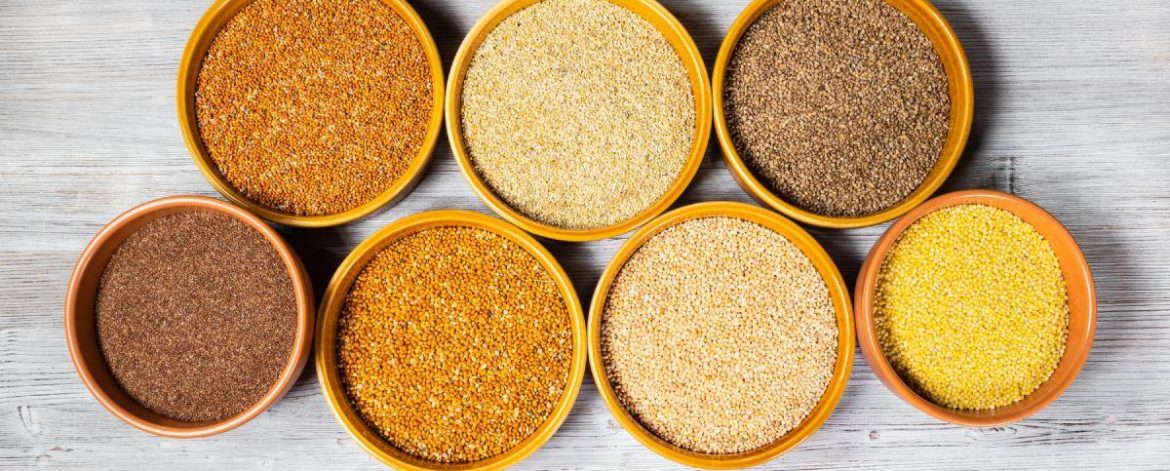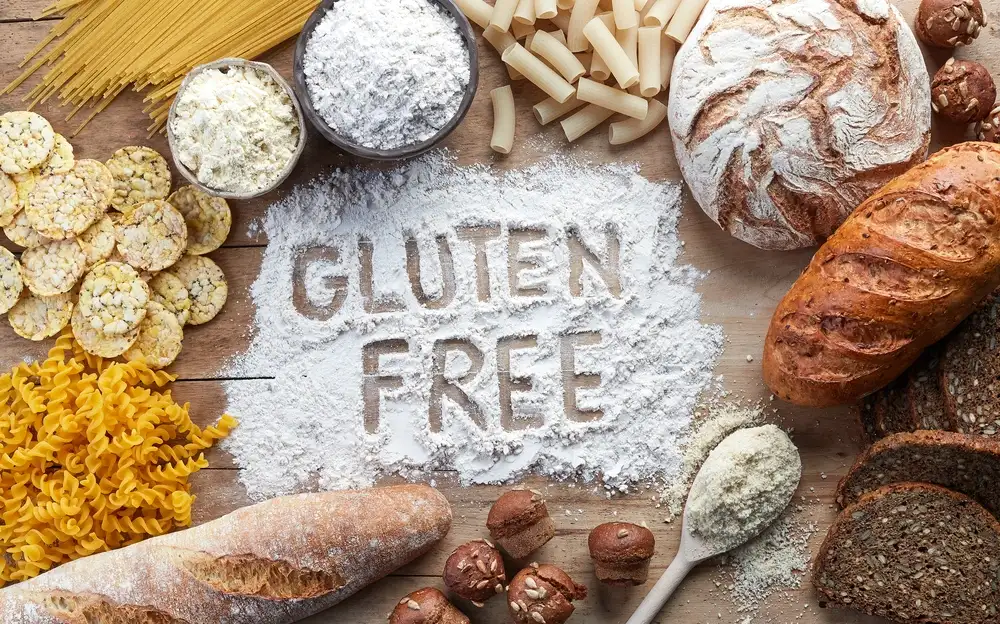Once used mostly as bird feed, millets are now growing in acceptance as a “Super Food” among all individuals, worldwide. Millets are generally ground into flour and are used in regular daily cooking to make chapatis (bhakris), pancakes, chillas, dosas, cakes, cookies, breads etc. Millets are unbelievably nutritious and a great source of magnesium, manganese, zinc, potassium, iron, B vitamins, fibre & protein. Also, they are naturally gluten-free. With time, people have become extremely conscious of their health and general well-being. We’ve all heard about the hazards of consuming gluten foods in one way or another. Most of the people just have a vague understanding of what gluten is and why it is potentially harmful, but it’s a need of the hour to go deeper dive on the subject to understand exactly what it is.
Global research suggests that “About 6% -7% of the world population is gluten intolerant. It’s more common than celiac disease, which affects about 1% of the population.”
What is GLUTEN?
Gluten is a protein naturally found in some grains including wheat, barley, and rye. Sometimes it’s in oats, but only because the oats may have been processed with other foods that contain gluten. Gluten acts like a binder, holding food together and adding a “stretchy” quality. It’s common in processed foods such as bread, pasta, pizza, cereals, savoury snacks etc.
Humans have digestive enzymes that help us break down food. Protease is the enzyme that helps our body process proteins, but it can’t completely break down gluten. Undigested gluten makes its way to the small intestine. The small intestine is unable to fully absorb each unit of protein, and this leads to poor digestion and other issues. Most people can handle the undigested gluten with no problems. But ‘gluten-sensitive people’ often report that gluten causes abdominal pain, bloating, constipation, and irritable bowel syndrome. This is the reason why our body sometimes reacts badly to an overload of gluten. With gluten everywhere, it’s no surprise that so many of us struggle with weight and other health problems, despite living in the advanced modern world.
Celiac disease is a chronic digestive and immune disorder that damages the small intestine. When people with Celiac disease consume gluten, their immune system attacks and damages the lining of their small intestine. With repeated exposure to gluten, the body becomes less able to absorb nutrients into the bloodstream. According to the NHS UK, this can cause undernourishment, loss of bone density, miscarriage, infertility, neurological disorders or a rare type of bowel cancer. Many people with celiac don’t even realize that they have celiac disease. The damage that happens to the intestine is very slow, and symptoms are so slow that it can take many years to diagnose the same. It is also one of the most common genetic disorders.
“There is no cure for the condition; the only treatment is a strict gluten free diet for life.”
Millets are superfood for people who follow gluten free diet.
Millets can provide nutritional security and protect against nutritional deficiency, especially among children and women. As they are gluten-free, have a low glycemic index and are high in dietary fibre and antioxidants, millets can also help in health challenges such as obesity, diabetes, and lifestyle problems. Once you add millets to your system, gluten intolerant people can see incredible health improvements. They may experience less bloating, reduced inflammation, clearer skin, lower blood triglycerides, improved blood sugar control, weight loss and more energy.
In case of people with intestinal disorders, consuming millets in its natural form may delay the digestion process and can affect their gut health. In those cases, people can go for Sprouted Millets. Sprouted grains are lower in starch than regular grains and higher in protein, vitamins, and minerals.
Research is still being done on their health benefits, but scientists have identified some promising findings in sprouted millets, such as:
- Diabetes-fighting properties
- Decreased risk of cardiovascular disease
- Better health for nursing mothers (decreased depression and fatigue)
- Protection against fatty liver disease
- Easier digestibility
- Increase in key nutrients
- Lower blood pressure levels
Overall benefits of Sprouted Millets
- Easily digestible : It helps people who are sensitive to digesting grains. The sprouting process naturally activates starch, protein and lipid degrading enzymes that “pre-digest” a grain. The grain uses dense protein and complex carbohydrates as fuel to grow, converting them to simpler amino acid and glucose molecules. This means that some of the enzymes our bodies use to break down the seed have already been applied, making it easier to pass through.
- Increased Nutrient Content:The little germinated seeds are regarded as nutritional powerhouses due to their high vitamin and mineral content. Sprouting transforms the nutrient profile of grains and allows your body to get the most from whole, natural foods.
- Low in Fat & contains good carbs:Sprouting reduces the fat % in grains & increase the fibre content. Sprouted millet flours can be consumed as a replacement of refined/wheat flours.
- Sweeter taste & great texture : Sprouted millet grain flour has a sweeter taste. This is due to the breakdown of starch into simple sugars during sprouting process. Also provides great texture in baking breads, cakes & cookies as they have long-lasting softness & volume and increased shelf life.
NIHKAN is on a mission to support the challenges faced by consumers who have “diet restrictions” either due to lifestyle choices or conditions such as celiac disease, gluten intolerance, gluten sensitivity, and lactose intolerance. And hence, curating finest products to provide health, nutrition & wholesome foods using ancient superfood grains of India. Combining traditional age old methodology for modern food choices of convenience & taste too. We urge consumers to understand their signs of body and make informed food choices.





